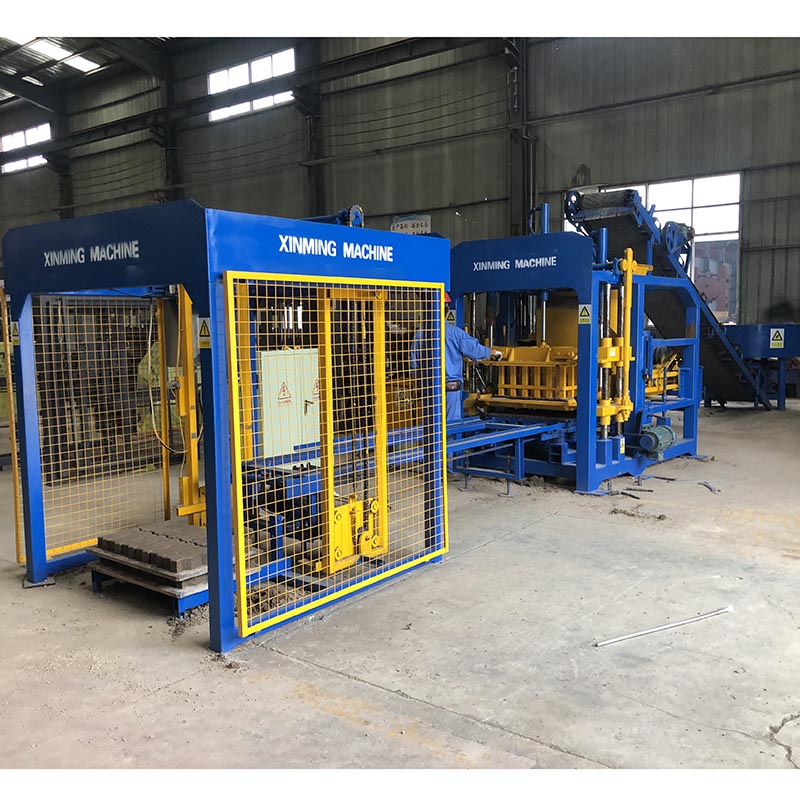
Image source:Aiwei block machine
Introduction
In the realm of construction, brick making machines have not only revolutionized the way buildings are constructed but have also played a pivotal role in transforming local economies. These machines have proven to be catalysts for job creation, skill development, and entrepreneurial ventures, particularly in regions where construction is a significant driver of economic activity. This article delves into how brick making machines empower local economies by generating employment opportunities, fostering entrepreneurship, and contributing to sustainable economic growth.
1. The Significance of Local Economies
Local economies form the backbone of regional development and growth, and their health directly influences the prosperity of communities.
- Employment Generation: Local economies provide jobs, income, and livelihoods for residents, contributing to their overall well-being.
- Entrepreneurship: Vibrant local economies encourage entrepreneurial initiatives, driving innovation and diversification.
2. Brick Making Machines: A Catalyst for Job Creation
Brick making machines have emerged as a powerful tool for generating employment opportunities in various ways.
- Manufacturing Roles: Machine operation and maintenance require skilled technicians, creating jobs within the manufacturing sector.
- Supply Chain: Brick production necessitates raw material procurement, transportation, and distribution, leading to additional jobs.
- Support Services: Brick-making facilities require administrative, logistics, and marketing personnel, further expanding job prospects.
3. Skill Development and Training
The utilization of brick making machines demands a skilled workforce, contributing to skill development and capacity building.
- Technical Training: Operators and technicians receive training to efficiently operate, maintain, and troubleshoot the machines.
- Upskilling: Continuous learning fosters skill enhancement, ensuring workers are well-equipped for changing industry demands.
4. Entrepreneurship and Small Businesses
Brick making machines open avenues for entrepreneurship and the establishment of small businesses.
- Micro Enterprises: Individuals or groups can start small-scale brick-making ventures, catering to local construction needs.
- Innovative Approaches: Entrepreneurs can explore unique brick designs, customized products, or value-added services.
5. Localized Economic Growth
Brick making machines contribute to localized economic growth through multiplier effects.
- Multiplier Effect: Job creation and increased economic activity have a ripple effect, boosting other local businesses.
- Income Generation: Additional income flows into the community, stimulating demand for goods and services.
6. Affordable Housing Initiatives
Brick making machines align with affordable housing initiatives, especially crucial in regions with housing shortages.
- Cost-Effective Production: Machine-produced bricks are often more affordable, aiding in the construction of budget-friendly housing.
- Social Impact: Affordable housing improves living conditions, fostering a positive societal impact on health and well-being.
7. Reducing Dependency and Migration
Empowering local economies through brick making machines can mitigate rural-to-urban migration trends.
- Rural Opportunities: Job creation in rural areas reduces the necessity for residents to migrate to cities in search of employment.
- Retaining Talent: Skill development and job opportunities encourage individuals to stay within their communities.
8. Challenges and Considerations
While brick making machines offer economic empowerment, challenges exist that need to be addressed.
- Access to Capital: Initial investment in machines and infrastructure can be a barrier for entrepreneurs.
- Regulatory Environment: Navigating regulations and obtaining permits can pose challenges, especially for small businesses.
9. Collaborative Development
Partnerships between governments, NGOs, and private sector stakeholders play a crucial role in maximizing the impact of brick making machines.
- Skill Development Programs: Collaboration can lead to skill development initiatives that prepare individuals for machine operation.
- Financial Support: Grants, subsidies, and loans can assist entrepreneurs in overcoming financial barriers.
10. Ensuring Sustainability
Sustaining the positive economic impact of brick making machines requires continuous efforts.
- Diversification: Encouraging entrepreneurs to explore innovative uses of machines beyond brick production.
- Skill Enhancement: Providing avenues for continuous skill enhancement to keep up with technological advancements.
Conclusion
Brick making machines go beyond bricks; they serve as agents of economic empowerment, fostering job creation, skill development, and entrepreneurship within local economies. By providing employment opportunities, enabling entrepreneurship, and contributing to economic growth, these machines play a vital role in transforming communities and improving the quality of life for residents. As the construction industry evolves, the potential for brick making machines to catalyze economic empowerment remains a driving force for sustainable local development.
